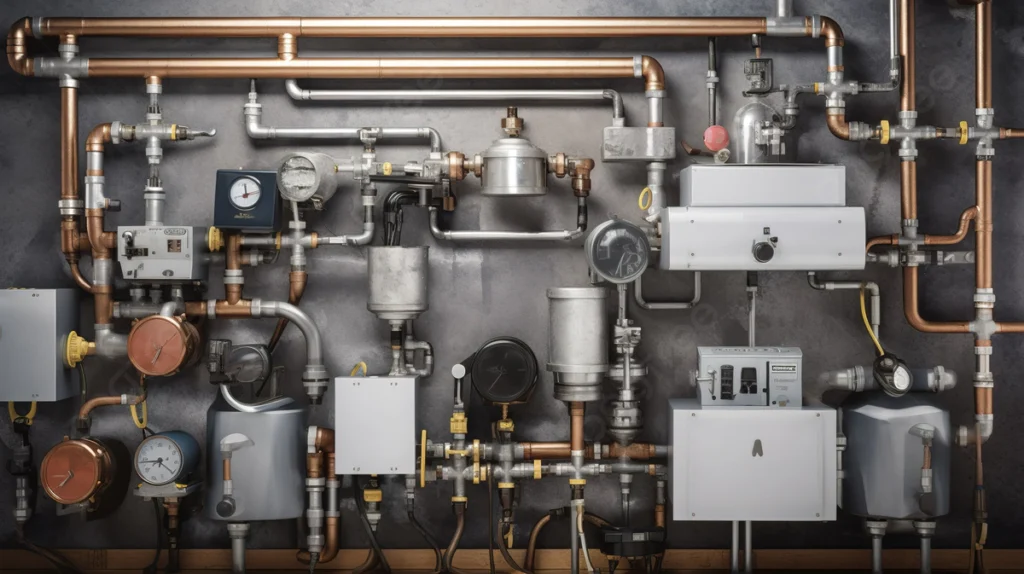In this article you will learn about How to Ensure Your Commercial Property’s Plumbing System Complies with Local Regulations.
Maintaining a compliant plumbing system in commercial properties is essential to ensure the safety of employees, customers, and the overall structure. Non-compliance can lead to fines, business disruptions, or even legal action. This guide will walk you through the steps to keep your commercial plumbing system up to code and avoid potential issues.
1. Understand Local Plumbing Codes and Regulations
Local plumbing codes vary by region and dictate the standards for commercial properties. Familiarize yourself with these requirements by:
- Consulting Your Local Building Department: Contact the local building or municipal department to access the most up-to-date plumbing regulations specific to commercial buildings.
- Hiring Licensed Plumbers: Work with licensed commercial plumbers familiar with local codes. They can help interpret and apply regulations to your plumbing system.
Pro Tip: Partnering with a local expert ensures your plumbing system remains compliant and up-to-date with changes in regulations.
Resources
- R.R.O. 1990, Reg. 1073: PLUMBER
- https://www.toronto.ca/services-payments/building-construction/apply-for-a-building-permit/building-permit-application-guides/plumbing-mechanical-and-drains-related-to-a-building-permit/related-plumbing-and-drain-permits/
- https://nrc.canada.ca/en/certifications-evaluations-standards/codes-canada/codes-canada-publications/national-plumbing-code-canada-2020
2. Conduct Regular Plumbing Inspections
Routine inspections are vital for compliance. A licensed plumber should perform a commercial plumbing inspection evaluate your commercial plumbing system for:
- Pipe Condition and Safety: Assessing pipes for leaks, co rrosion, and other damage that may not meet code standards.
- Backflow Prevention Devices: Ensuring these devices are installed and regularly tested to prevent contamination of the water supply.
- Water Heater Compliance: Checking water heater installation and maintenance to meet safety guidelines and energy regulations.
3. Invest in Preventive Maintenance Programs
Preventive maintenance is a proactive way to ensure compliance and avoid costly emergency repairs. Key elements include:
- Routine Pipe and Drain Cleaning: Keeping pipes clear and clean to prevent blockages and maintain code compliance.
- Grease Trap Maintenance: For properties like restaurants, maintaining grease traps is crucial for meeting health and safety standards.
- Water Pressure Monitoring: Monitoring and regulating water pressure helps prevent damage and ensures it remains within code-specified limits.
Pro Tip: Implement a preventive maintenance schedule with a commercial plumbing service provider to stay ahead of potential issues.
4. Plumbing upgrades for commercial properties
Old or outdated plumbing fixtures may not comply with current regulations or could pose safety hazards. Consider:
- Replacing Old Pipes: Older pipes, such as those made of lead or galvanized steel, may need to be replaced to meet modern standards.
- Installing Water-Saving Fixtures: Upgrade to low-flow fixtures and water-saving appliances to comply with local environmental codes and reduce water usage.
- Modernizing Backflow Prevention Systems: Ensure all backflow prevention devices are up-to-date and tested as required.
5. Ensure Proper Documentation and Record-Keeping
Documenting all plumbing work and inspections is crucial for demonstrating compliance. Best practices include:
- Maintaining Records of Inspections: Keep detailed records of all plumbing inspections and maintenance activities to show compliance during audits.
- Recording Backflow Tests: Document backflow tests annually or as required to meet safety regulations.
- Permits and Certifications: Ensure all necessary permits and certifications for plumbing work are properly filed and stored.
Pro Tip: Organized documentation not only helps during inspections but also provides peace of mind knowing your property complies with local regulations.
6. Schedule Regular Backflow Testing
Backflow prevention is a critical component of commercial plumbing compliance. Ensure:
- Annual Testing: Schedule backflow testing annually or as often as required by local authorities.
- Certified Backflow Testing: Only hire certified backflow testers to perform these checks and provide valid certifications for compliance.
7. Work with a Commercial Plumbing Expert
The best way to ensure compliance is to partner with a licensed commercial plumbing expert who knows local regulations. Benefits include:
- Tailored Compliance Strategies: A professional plumber can customize compliance strategies for your property, ensuring all unique needs are met.
- Access to the Latest Technology: Modern plumbers use advanced tools, such as video camera inspections, to detect and address code violations efficiently.
- Peace of Mind: By working with an expert, you can focus on running your business, knowing your plumbing system is up to code.
Ensuring your commercial property’s plumbing system complies with local regulations requires regular inspections, preventive maintenance, and professional expertise. Staying proactive can save you from legal issues, fines, and costly repairs. Contact a licensed commercial plumbing service today to discuss your compliance needs and keep your property safe and efficient.
Need help ensuring your commercial property’s plumbing compliance?
Contact our licensed experts today for a free consultation and inspection!”







